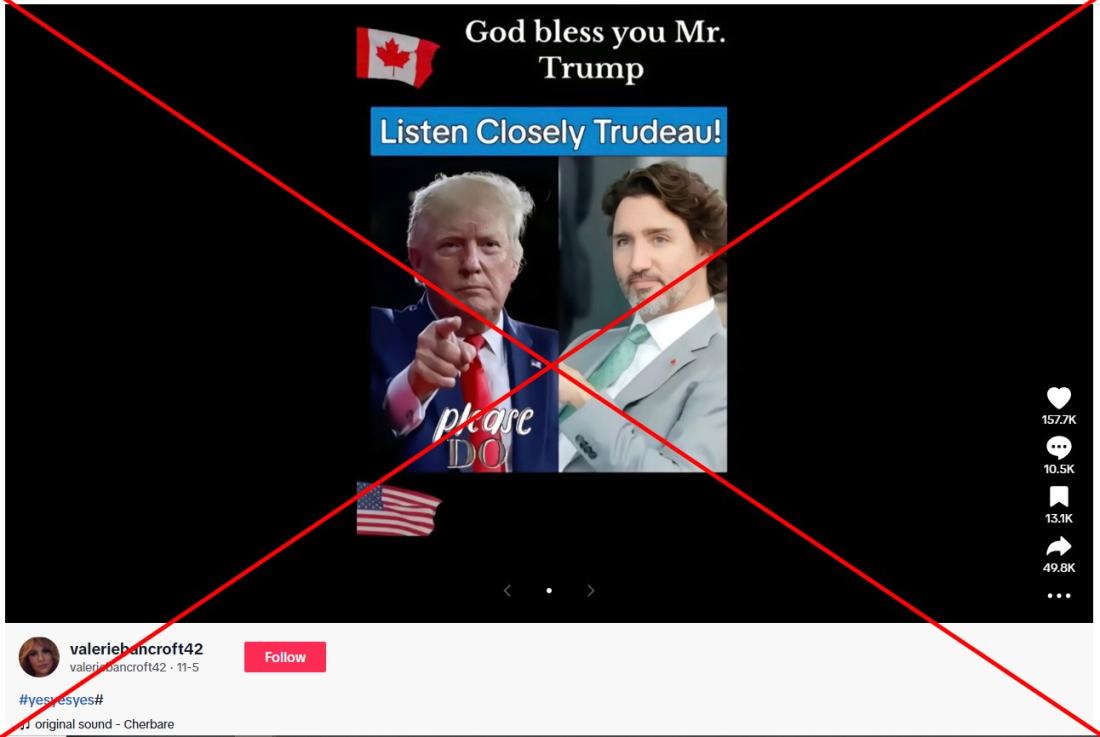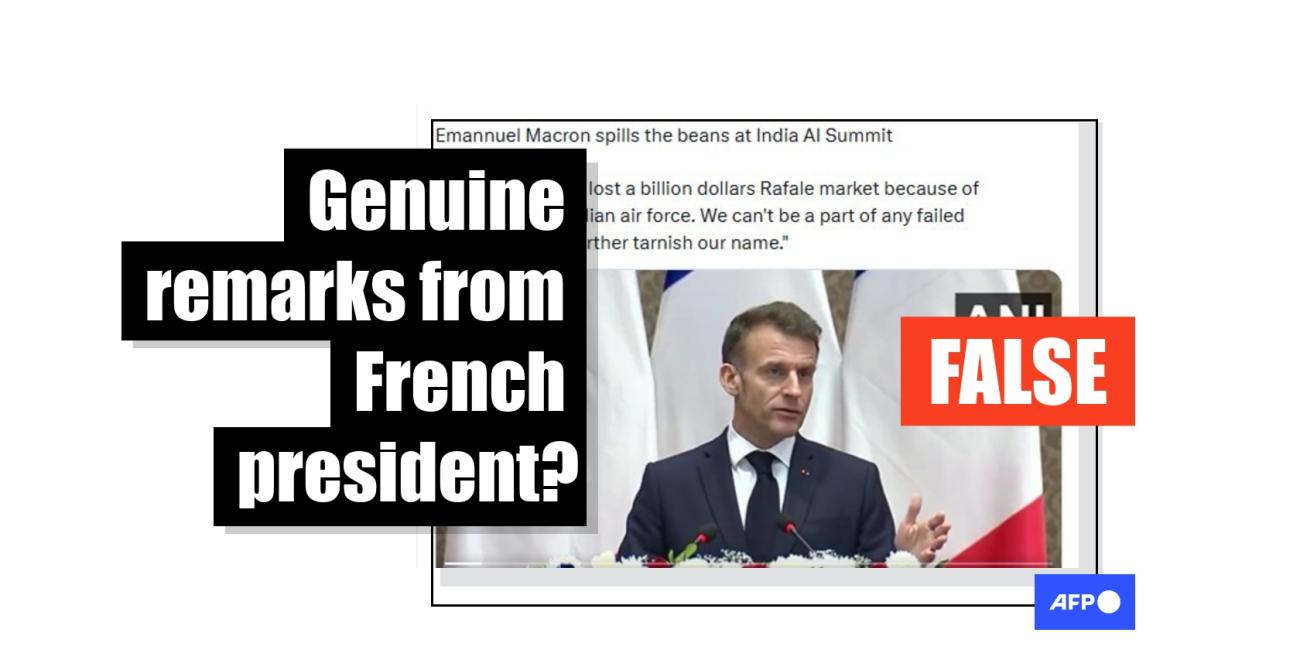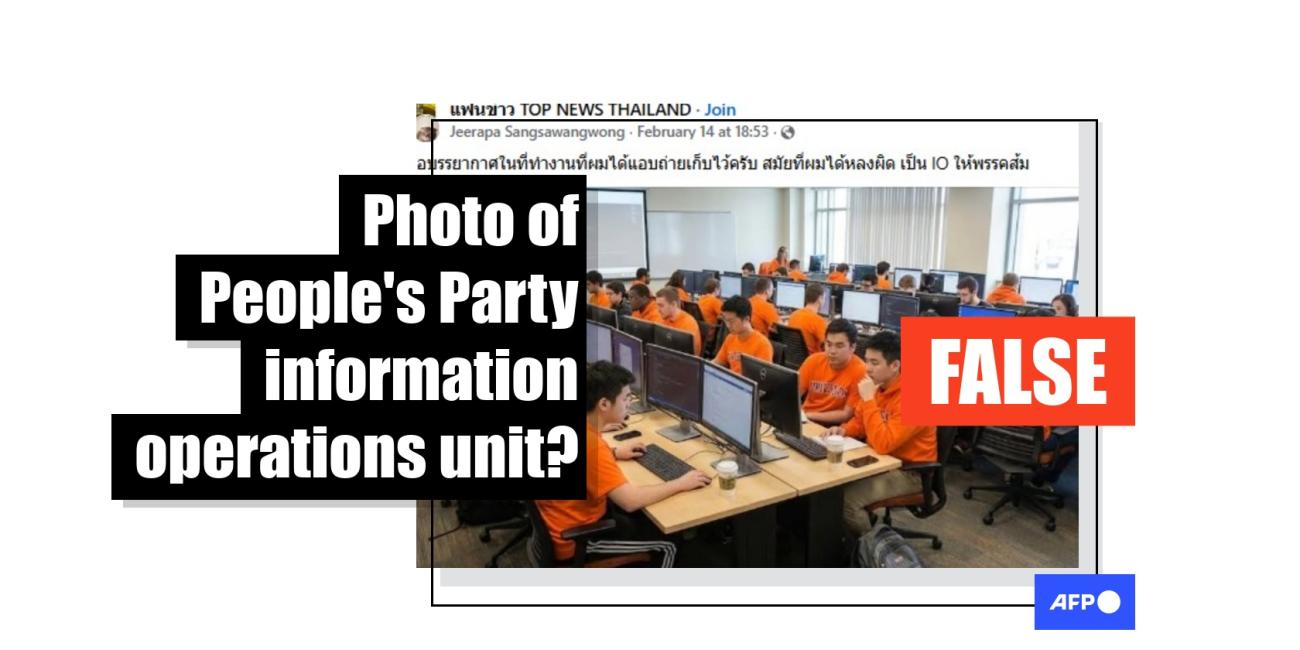
Audio of Trump threatening Trudeau is likely a deepfake
- This article is more than one year old.
- Published on November 19, 2024 at 21:13
- 3 min read
- By Gwen Roley, AFP Canada
"Mr. Trudeau -- if elected again in Canada -- I personally will have him arrested if he steps one foot in the United States," Trump supposedly says in the voiceover of a November 5, 2024 TikTok.
Other posts on the video-sharing platform spread the same audio over different screenshots of the two North American politicians, garnering millions of views.


Trump won the US presidential election on November 5 and Trudeau offered congratulations to the president-elect, highlighting the countries' "successful partnership" as neighbors and active trade partners (archived here).
The two leaders did share tense exchanges during Trump's first presidency with Trudeau later launching veiled jabs of the American's rhetoric, but the audio of Trump discussing a possible arrest appears to be a manipulation.
Using keyword searches, AFP could not find other media or official statements referencing a supposed threat from Trump (archived here). Two publicly available artificial speech detectors found the audio was very likely a deepfake (archived here) created with speech synthesis software such as a product from the AI firm ElevenLabs.

Hélène Huang, a former research assistant at Concordia University's Applied AI Institute, said she received similar results when running the clip through a detector.
"Of course, the tools are not always a hundred percent reliable, but when they flag it as possibly AI-generated, it usually means that the inputs are very likely fishy," she said in a November 15, 2024 email.
Huang pointed out the audio sounded robotic and ended abruptly -- characteristics she said the Applied AI Institute elections research team found in other manipulated audio (archived here).
Both Trump and Trudeau have been subjects of deepfakes debunked by AFP.
Right timbre, wrong rhythm
Aleksander Essex, an associate professor of software engineering at the University of Western Ontario (archived here), listened to the clip and noted that the audio had the same quality -- or timbre -- as Trump's voice, but that the rhythm was stilted. He said the robotic-sounding voice suggested the audio was manipulated given that it differs from Trump's typical speech patterns.
"Donald Trump is not generally known for speaking in a monotone voice, it comes off as non-characteristic," Essex said in a November 15 interview.
He agreed with Huang that AI detector tools are not completely reliable, adding that as the technology evolves, deepfakes will become almost indistinguishable from legitimate media. A better way to verify manipulated audio and video, Essex said, would be to assess the veracity of what is being claimed in a potential deepfake.
"The content of what he is saying is kind of ridiculous and extraordinary," Essex said, speaking about the idea of arresting the prime minister. "So that is another red flag."
No Canadian or American head-of-state has ever been arrested while visiting the neighboring country.
According to the Institute of International Law in Geneva, serving heads of governments may not be placed under arrest while visiting a foreign state (archived here). This international immunity is less legally definite if the head-of-state is accused in a war crimes or genocide case.
Rights groups have sought to implicate Trudeau and other members of his cabinet in a war crimes case related to the conflict in Gaza (archived here), but Canada's prime minister has not been charged in any such court proceeding.
AFP has also debunked false claims of genocide convictions levied against Trudeau.
Read more about AFP's reporting about misinformation in Canada here.
Copyright © AFP 2017-2026. Any commercial use of this content requires a subscription. Click here to find out more.
Is there content that you would like AFP to fact-check? Get in touch.
Contact us




